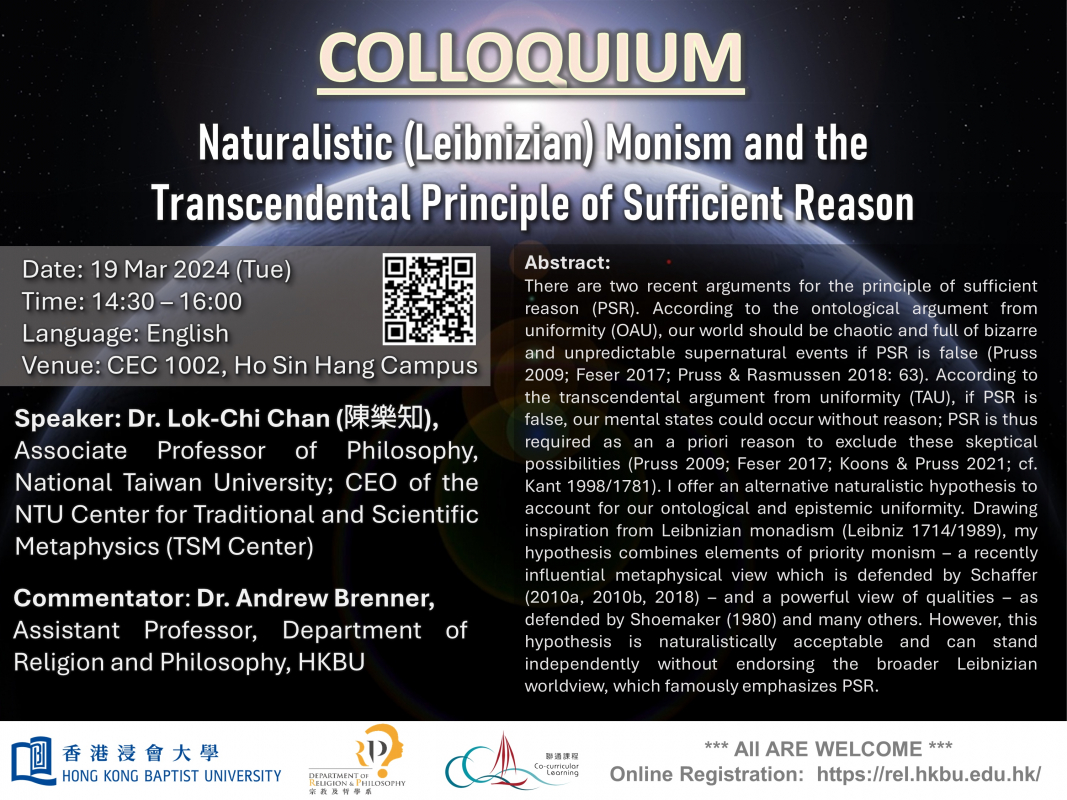There are two recent arguments for the principle of sufficient reason (PSR). According to the ontological argument from uniformity (OAU), our world should be chaotic and full of bizarre and unpredictable supernatural events if PSR is false (Pruss 2009; Feser 2017; Pruss & Rasmussen 2018: 63). According to the transcendental argument from uniformity (TAU), if PSR is false, our mental states could occur without reason; PSR is thus required as an a priori reason to exclude these skeptical possibilities (Pruss 2009; Feser 2017; Koons & Pruss 2021; cf. Kant 1998/1781). I offer an alternative naturalistic hypothesis to account for our ontological and epistemic uniformity. Drawing inspiration from Leibnizian monadism (Leibniz 1714/1989), my hypothesis combines elements of priority monism – a recently influential metaphysical view which is defended by Schaffer (2010a, 2010b, 2018) – and a powerful view of qualities – as defended by Shoemaker (1980) and many others. However, this hypothesis is naturalistically acceptable and can stand independently without endorsing the broader Leibnizian worldview, which famously emphasizes PSR.





